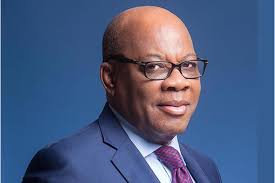Prominent legal luminary and Senior Advocate of Nigeria (SAN), Dr. Olisa Agbakoba, has issued a clarion call for the urgent redistribution of powers across the three tiers of government in Nigeria. According to him, the current overcentralization of power at the federal level is a major impediment to national development and efficiency.
In his detailed statement, Dr. Agbakoba highlighted that the political structure of Nigeria is overly focused on the federal government, often to the detriment of states and local governments. He noted that “everything is decided in Abuja,” a situation he believes is counterproductive to the nation’s growth and the effective delivery of governance.
Dr. Agbakoba’s concerns come amidst debates surrounding the Tax Reform Bill, which he described as beneficial in terms of revenue generation. He observed that the bill incentivizes the working class while focusing on corporate entities and the upper class. However, opposition to the bill has emerged, particularly from Northern Nigeria, which argues that the revenue distribution formula does not align with established principles for sharing oil revenue.
“The North asks why the revenue-sharing formula in the proposed Tax Reform Bill is not the same as that for sharing oil revenue. This is a huge problem!” Dr. Agbakoba remarked.
He further emphasized the need for a shift from revenue sharing to revenue generation, arguing that devolving power would provide stronger incentives for states, particularly in the North, to tap into their unique economic potentials, such as agriculture.
“The North, for example, has the capacity to generate massive revenue from the mechanization of agriculture, but it has not, as there are no strong incentives,” he said.
Dr. Agbakoba also pointed out inefficiencies in the federal government’s involvement in areas better handled at lower levels, such as primary and secondary education, marriage, and drivers’ licenses. He called for a reduction of federal control over such functions to enable states and local governments to operate more effectively.
“When one looks at the 98 items of power, it is plain that we, as a matter of first principles, need to distribute power more evenly and effectively across the three arms of government,” he stated.
The legal expert also advocated for a judicial restructuring, noting that the Supreme Court’s jurisdiction is overly broad, leading to delays in justice delivery. He proposed that local and state-level jurisdictions handle smaller cases to ease the burden on the apex court.
Concluding his statement, Dr. Agbakoba reiterated the critical importance of governance reform, arguing that devolution of powers would shift Nigeria’s focus from mere revenue sharing to robust revenue generation, ultimately driving development.
“This is the only way we will grow the economy from sharing revenue to generating revenue,” he asserted.
Dr. Agbakoba’s call has reignited discussions on restructuring Nigeria’s political framework to ensure a more equitable and efficient distribution of power and resources, a debate that continues to shape the country’s socio-political landscape.






















































